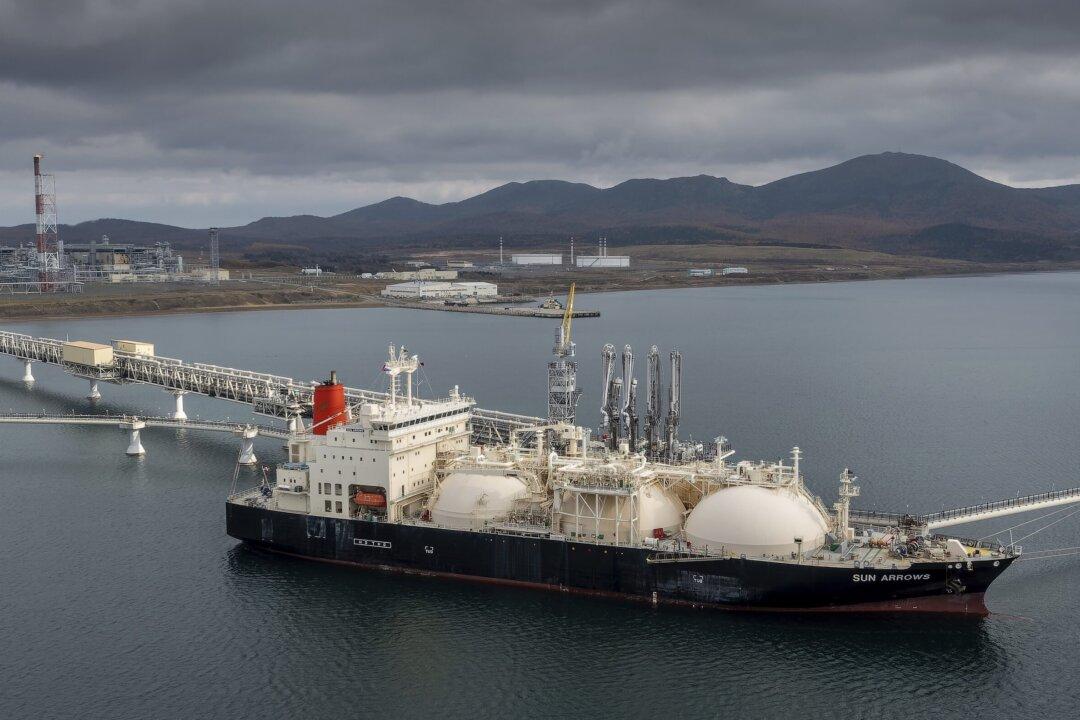European gas prices, which aggressively rose on Thursday, fell on Friday as Russian energy giant Gazprom indicated that gas exports are continuing without interruptions despite the turmoil created by Moscow’s invasion of Ukraine.
Dutch TTF Gas Futures March contract closed at 134.316 euros on Feb. 24, jumping up 51.1 percent from the previous day’s close of 88.891 euros, according to data from the Intercontinental Exchange. On Feb. 25, gas futures were trading at 93.800 euros as of 04:10 PM GMT, a decline of 30.16 percent from the previous day’s close. Dutch TTF gas futures are seen as a benchmark natural gas indicator in Europe.





